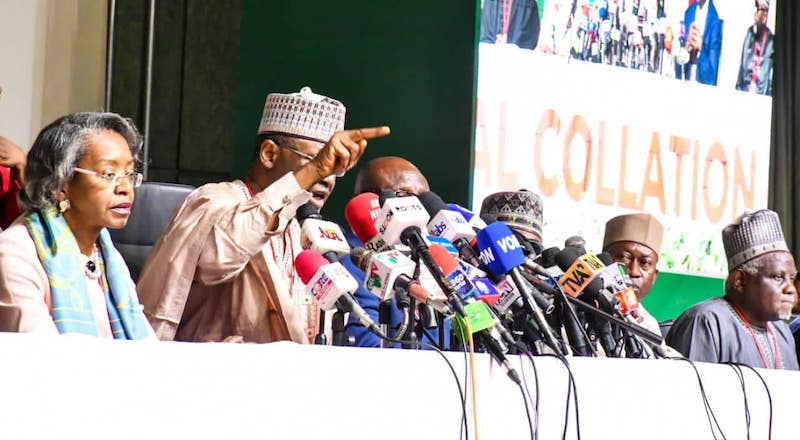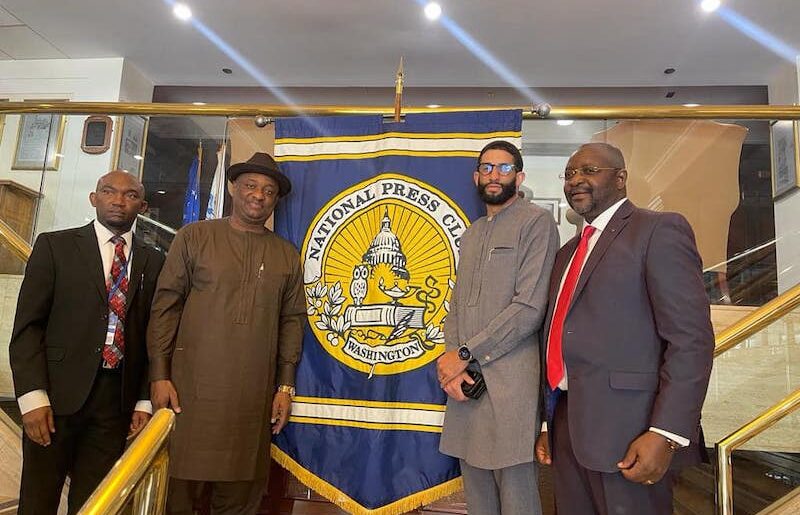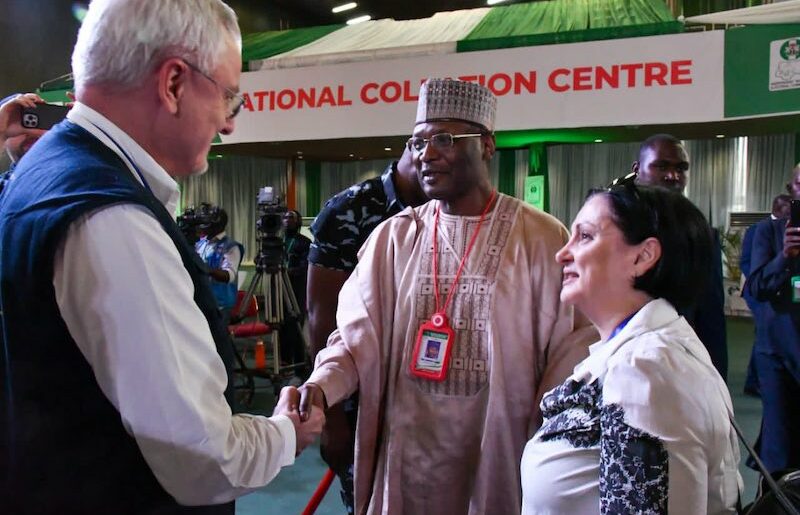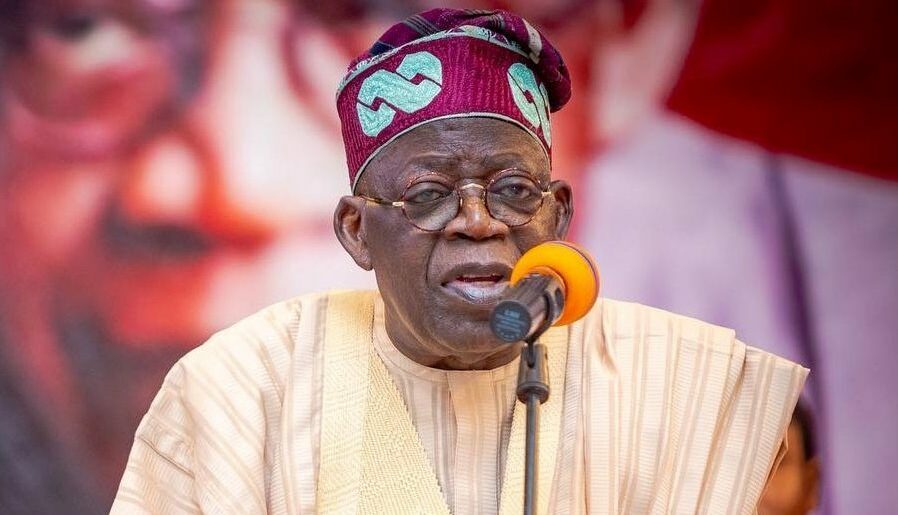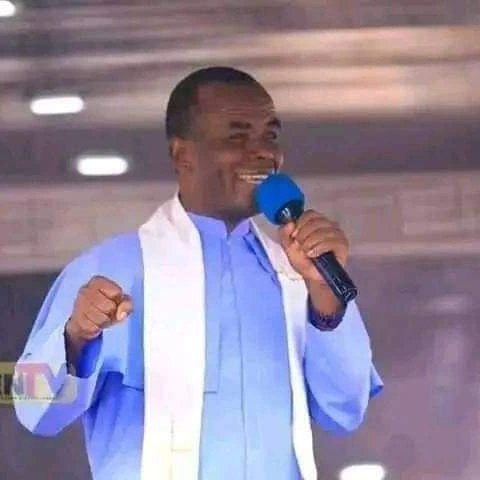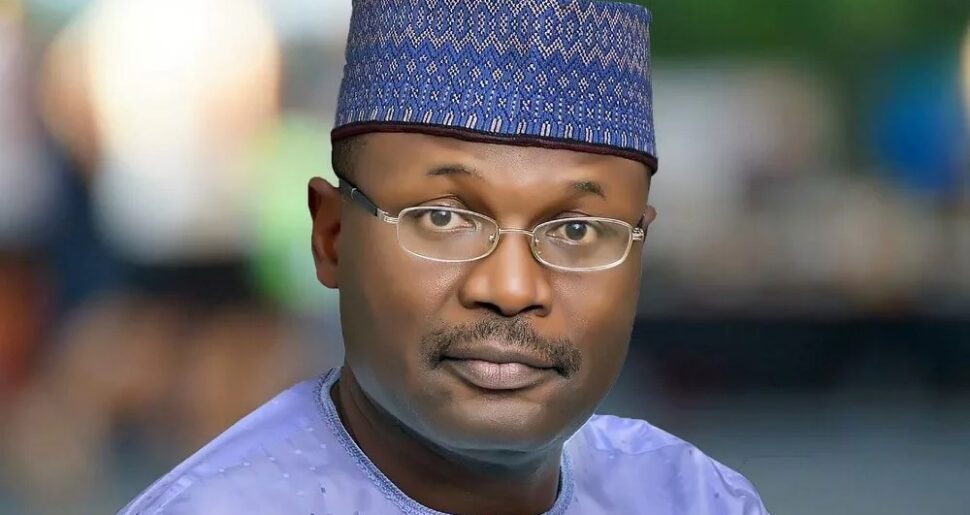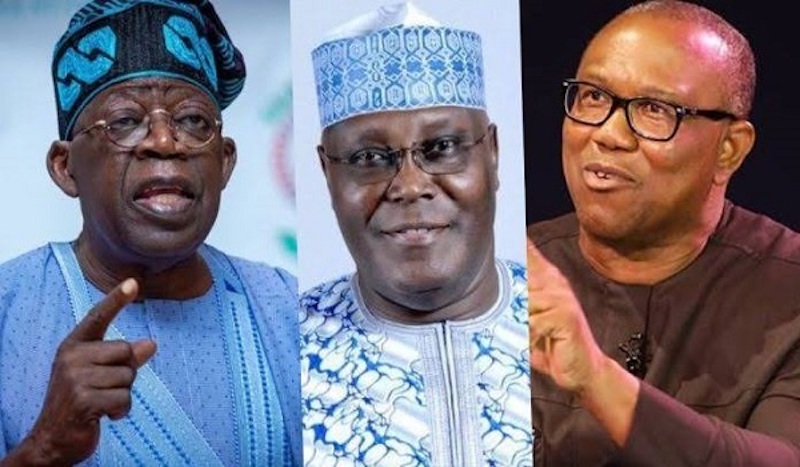Being the text of a Press Conference addressed by a Coalition of Civil Society Organizations on the outcome of the just concluded general elections and the State of the Nation today, Monday, 27th March, 2023.
Preamble
We want to start by passing our warmest regards and salute to NIGERIANs for their commitment to the unity of Nigeria by coming out to express their democratic right in the just concluded general elections, we also commend all the institutions that took active part in the exercise which includes INEC, all the Security agencies, EFCC, Members of the Fourth Estate/the Media and the accredited local and international observers.
We in the civil society community have watched recent events in the nation’s body polity with keen interest. We have observed this negative trend since the end of the recently held 2023 General Elections notwithstanding the inconclusiveness of two states gubernatorial elections, with deep feeling of anger and disbelief regarding the effect that the country seems to be moving away from the path of sanity and civility to a steady descent to anarchy and chaos.
Due to this, we as democrats, can no longer fold our arms and do nothing as responsible stakeholders in the Nigerian project.
For the purpose of emphasis, what the country has been passing through since the 2023 general elections is nothing more than political rascality, irresponsibility, crudity, recklessness, insensitivity and treasonable acts which threaten our nation’s democracy and national security.
As you all know, we have been active players in Nigeria’s political life since the days of military despotism in the 80’s and 90’s.
We have even been very active since our tertiary education days as young adults till now and our roles in the civil society movement are very much well known and documented.
For the avoidance of doubt, our series of advocacy have brought us to follow in the footsteps of leading lights in the civil society movement such as the likes of Chief Gani Fawehinmi, Beko Ransome Kuti, Anthony Enahoro, Baba Omojola, Alfred Ilenre, Chima Ubani, Admiral Ndubuisi Kanu, Cmdr. Dan Suleiman, Alao Aka Bashorun, Hajiya Gambo Sawaba, Ola Oni, Arthur Nwankwo, Prof Jadesola Akande, Alhaja Raliat Daniju, all of blessed memory.
We are also glad that some of the shinning lights such as Chief Ayo Opadokun, Prof Wole Soyinka, Dr. Keziah Awosika, Fred Agbeyegbe, Ayo Obe, Titi Akosa, Prof Femi Obayori, Biodun Aremu etc are still alive but remain sad that the country of our dreams that was hoped and laboured for, is still far away from the proverbial Eldorado.
It is to the credit of these patriots and many more persons of like minds and interest, that they were able to galvanize the society for good governance and democracy in their lifetime and thus played critical roles in terminating military dictatorship in Nigeria. Their heroic stance and actions are well acknowledged and receipted by history.
Collectively with these giants, we sacrificed sweat, limbs and lives of the Nigerian people at great costs to birth this democracy in 1999 and we will not fold our arms and watch it derided, demarketed, maligned, discredited and truncated by elements that lack democratic ethos and credentials.
We refer to characters who lack proper understanding of democracy and its values and are not ready to learn, have obstinately refused to imbibe the tenets of democracy which is about the will of the majority over the minority as expressed by all Nigerians who came out to vote at the polls.
Following the fair, successful and credible conduct of the 2023 general elections by the Independent National Electoral Commission (INEC), whom we commend for the marvelous work it has done despite all the landmines laid in its path, we have watched with bated breadth and shock, how some characters are plotting to truncate our hard earned democracy at all costs through treasonable and subversive calls for the installation of an interim government.
These unpatriotic elements have resorted to fake news, hate speech, lies, falsehood, misinformation and campaign of blackmail and calumny against all known national institutions with a view to arm twisting and blackmailing them to toe their ignoble and undemocratic line.
Wickedly of them, their sinister and unpatriotic actions have caused threats to the lives of Nigerians because their party and candidate lost an election.
If we all recall, while INEC was busy with the collation of the Presidential and National Assembly Elections results, two bitter and sore losers presidential candidates and members of their political parties having seen the handwriting of defeat on the wall via their manually collated party agents results from the polling units, to the wards, local government levels and state collation centres, started calling for the cancellation of the presidential election midway citing irregularity of non uploading of the results to the IRev by INEC and sadly, this irresponsible, insensitive, reckless, provocative and treasonable call was echoed by a former President of Nigeria whose place is cemented in our political history as the progenitor of do or die politics, who supervised the most scandalous elections in our national life.
Ladies and gentlemen, we want it placed on record, that we condemn in totality the pockets of violence, voters intimidation and harassment which occurred in some polling stations during the elections and we demand that the security agencies investigate and take appropriate action to remedy these infractions that have become a recurring decimal across the country at every election cycle.
However, we reject in strong terms the attempt to taint the credibility of the 2023 general elections by anti democratic elements who have taken their campaign of calumny against the successful and credible conduct of the elections to a ridiculous height by describing it as the worst in Nigeria’s history, that it was marred by electoral violence and voters suppression which is at variance with the facts on the ground.
According to a report published by socioeconomic research firm SBM, voters intimidation, harassment and assault were only reported in 5% of the polling stations nationwide. This figures reflect a downward trend of violence. The 2023 general elections was the least violent in Nigeria’s election history and the data of election history below will validate our position.
Elections Years/deaths
1964/65 – 200
1993 – 100
1999 – 80
2003 – 100
2007 – 300
2011 – 800
2015 – 100
2019 – 150
2023 – 13-28
From the report, we can confirm that 13 persons were killed in 36 incidents across Nigeria, but this figure could go as high as 28 if we consider some media reports of deaths which is subject to verification.
Thus, like we say, data don’t lie, so how can any responsible person be engaged in lies, falsehood and blackmail of the 2023 general elections in the face of obvious facts that its violence rate shows a steady decline unlike in previous elections?
It is a well known fact that Nigeria operates a constitutional democracy in which the process for the installation of a government has been prescribed as through universal suffrage (election) by the 1999 Constitution (as amended).
The same Constitution also provides room for aggrieved parties to seek redress for any perceived infraction through the Election Petitions Tribunal and the Courts.
Nowhere in the 1999 Constitution (as amended), is it stipulated that when an election) is conducted and results declared, that the aggrieved parties, candidates and supporters can resort to street protests, threats of violence, call for cancellation of election or installation of an interim government.
The Constitution does not permit for aggrieved candidate(s) or party to engage in peddling of fake news, hate speech, lies, falsehood, misinformation, incitements, campaign of blackmail, intimidation and calumny against the state through threats of breakdown of law and order.
The Constitution does not permit for aggrieved candidate(s) or party to engage in peddling of fake news, hate speech, lies, falsehood, misinformation, incitements, campaign of blackmail, intimidation and calumny against the state through threats of breakdown of law and order.
Any party, candidate or its agents resorting to the above mentioned anti- democratic acts and threats to national security under our laws, is liable for treason and we urge the government to activate all its law enforcement agencies to act swiftly to prevent this ticking bomb that threaten our collective peaceful co-existence.
We are shocked and amused that while going to court to challenge the outcome of the presidential election which was conducted successfully and creditably by INEC in which they lost, same aggrieved candidates and their party are in the same breadth hypocritically applauding and commending the conduct of national and state houses of assembly and governorship elections by same INEC in which they won, these political parties, its candidates and agents have been making provocative, irresponsible, insensitive, reckless, undemocratic and subversive statements against democracy and national security through interviews, comments, sponsored rallies which is condemnable and unacceptable.
We also condemn in strong terms, the subversive and unGodly sermons from anti democratic elements accomplices on the pulpit who have desecrated the altar of God for political expediency.
Everyday, the sensibilities of Nigerians are assaulted and traumatized by the so called men of God denigrating the Lord’s temple for filthy political lucre which is very sad, unfortunate, reprehensible and despicable.
We however want to use this opportunity to admonish these agents of destabilization, that as Nigerians who went to the polls peacefully and orderly to exercise our franchise on election day and even observe the elections, we will no longer fold our arms and watch them discredit and undermine our democracy and national security for their selfish end.
We state that as organizations which observed the 2023 general elections under our umbrella body, we affirm that the elections were conducted in substantial compliance with provisions of the electoral Act 2022 and the outcome reflected the will of the people as expressed at the polls.
The treasonable comments and conducts being exhibited over an election that was creditably conducted in substantial compliance with provisions of the Electoral Act, which they lost is becoming embarrassing and unbearable.
The silence of the majority of Nigerians who voted for the President-elect and other candidates who won at the polls, must not be mistaken for cowardice, enough is enough!
We commend the media for the professionalism and objectivity exhibited before, during and after the elections and appeal to them to continue to uphold the ethics of the profession just as we charge them to educate and sensitize innocent and peace loving Nigerians on the tenets of democracy which is being daily debased, abused and assaulted by these anti democratic elements just to confuse and incite the people for selfish end, enough is enough!
Finally, we commend our hardworking and tireless security and anti graft agencies for their professionalism, impartiality and dedication to duty which contributed in no small measure to the success and credibility of the elections and particularly urge the security agencies to rein in these anti democratic elements to face the law for subversion and treason where it is established after investigation.
Enough is Enough of political rascality over the 2023 general elections.
God bless the Federal Republic of Nigeria.
Thank you all for your attention.
Yours Sincerely,
Razaq Olokoba
Convener
Campaign for Dignity in Governance
Nelson Ekujumi
Co-Convener
Committee for the Protection of Peoples Mandate
Titi Akosa
Co-Convener
Center for 21st Century Issues
Raji Rasheed Oyewumi
Co-Convener
Movement for Democratic Change
Alex Omotehinse
Co-Convener
Center for Human and Socio-economic Rights


